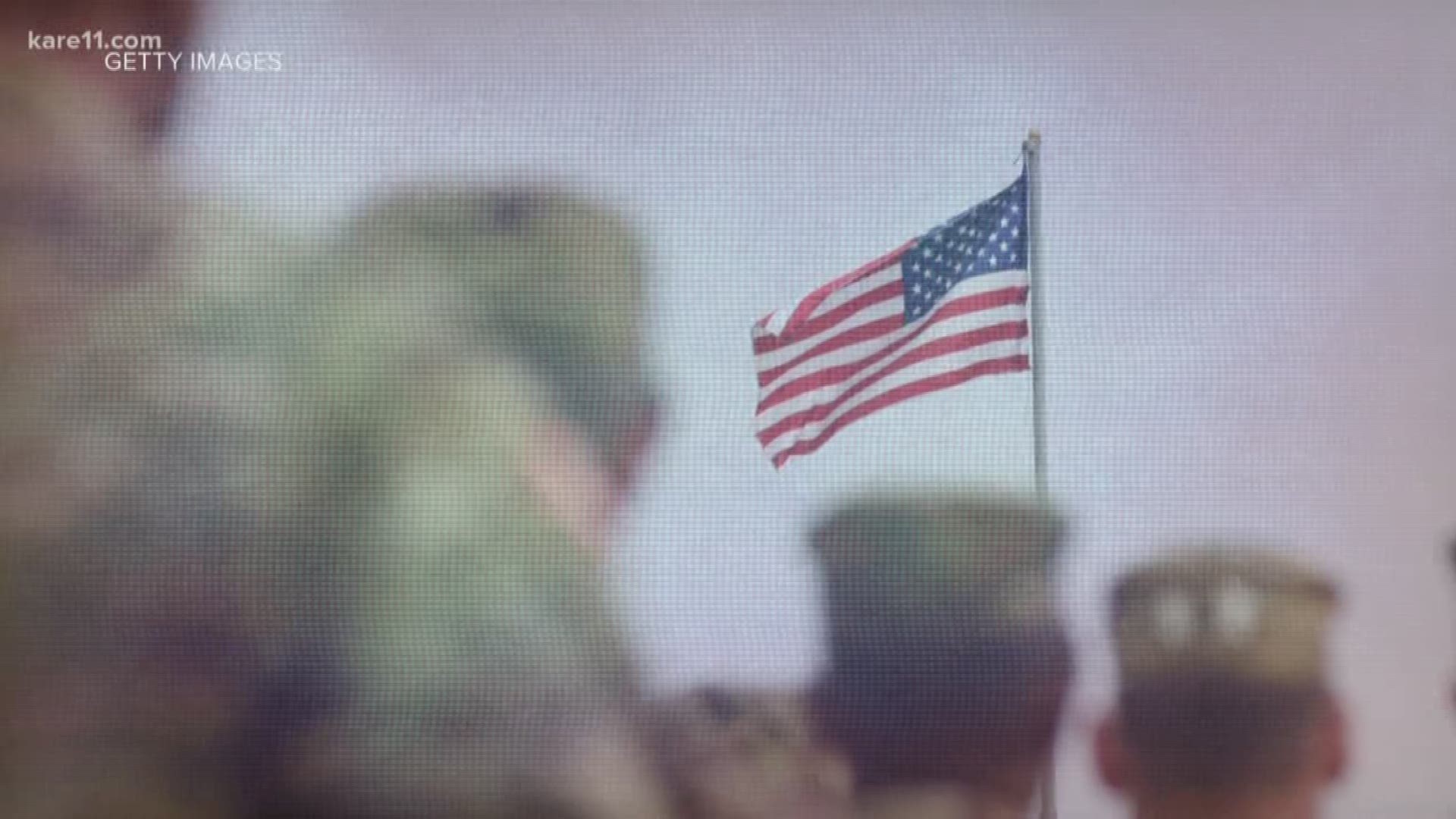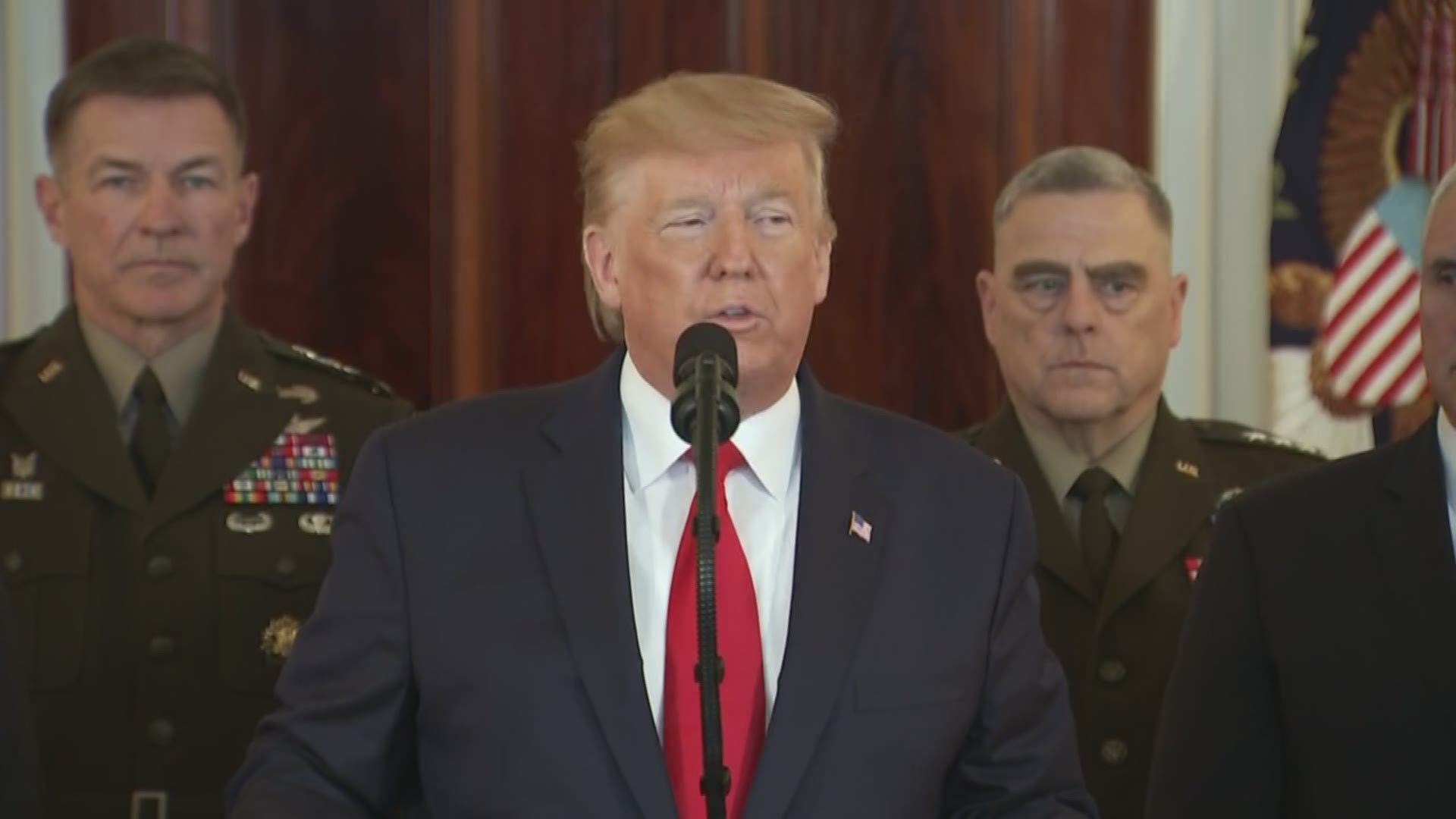The rockets flew last night from Iran in retaliation for the airstrike that killed a popular Iranian general. A lot of questions remained last night and President Donald Trump addressed the nation about the attacks Wednesday morning.
"No Americans were harmed in last night's attack by the Iranian regime," President Trump said. "We suffered no casualties, all of our soldiers are safe and only minimal damage was sustained at our military bases."
"Finally to the people and leaders of Iran," he said, as he neared the end of his speech. "We want you to have a future and a great one that you deserve. Prosperity at home and harmony with the nations and the world. The U.S. is ready to embrace peace with all who seek it."
President Trump spoke for less than ten minutes and did not take questions. There was a lot of information to process and context to bring in. So we asked University of St. Thomas history professor Shaherzad Ahmadi to break things down for us.
This chain of events is a complicated one. The conflicts involving Iran, Iraq and the U.S. go way back but in recent history, professor Ahmadi explained that it began a week and a half ago.
"An American contractor was killed by the Shiite militia," Ahmadi said. "Iraqi Shiite soldiers were big heroes in Iraq. These are the people who defended Iraq against ISIS."
From there, the reaction to the action began. The U.S. responded by killing dozens of Shiite soldiers in Iraq. Then there was the attack on the U.S. embassy in Iraq. Then, came the assassination of revered Iranian general Qassam Soleimani.
"Soleimani has blood on his hands, there's no question about it," Ahmadi said. "The issue at hand is that-- was the risk worth it? And that's something that we as Americans will be evaluating as time goes on."
Ahmadi said evaluating, referring to President Trump's claims about Soleimani's plans.
"In recent days, he was planning new attacks on American targets but we stopped him," President Trump said in the news conference Wednesday.
Ahmadi said we have yet to see any information about these attacks in planning.
"There are now suggestions that the imminent threat that Mike Pompeo and others had insisted he posed, they might have learned it from our national security agencies-- I'm sure they didn't create it out of thin air-- might not have been as imminent as we were immediately told," Ahmadi said. "This is unraveling as we speak so we don't know what the threat was."
Since then, Iran has fired more than a dozen missiles at two U.S. basese in Iraq, with no reported U.S. casualties or injuries. Ahmadi explained that this is where the truth splits in half-- one story for the U.S. and another for Iran and Iraq.
"Both Iran and Iraqi news are both reporting that 80 Americans were killed in this attack," Ahmadi said. "They're misinforming their people because they know there's not much else they can do about this."
Hence, the reason why the President took a reassuring note in his speech Wednesday morning.
"Iran appears to be standing down, which is a good thing for all parties concerned and a very good thing for the world," Trump said.
Politics aside, Ahmadi said Iran also knows that it cannot afford an all-out war against the United States, especially not with maximum sanctions.
"It's impossible to get good medicine in Iran, even before the sanctions it was very hard," Ahmadi said. "Now you can imagine, anyone with a terminal illness is hopeless, anyone with any issue is hopeless. The Islamic Republic, beyond the political issue cannot economically afford a war and he's counting on that."
If time were to stop here, Ahmadi said President Trump achieved a goal.
"This was a risk that I'm not sure was totally calculated by Trump but if this ends here in a way it paid off, he did what he wanted to do and Iran wasn't able to do much else," Ahmadi said.
All this now with the greatest loser being Iraq, according to Ahmadi. She said Iraq has been a battleground for all the action and reaction between Iran and the U.S.
"This attack to me is emblematic of the fact that Iran is not keen on having a great war with the U.S.," she said. "If such a fight were to take place, it would very likely hurt Iraqis the most and it's important to keep in mind at this point, it does not appear the Islamic Republic of Iran is acting irrationally in its foreign policy."


